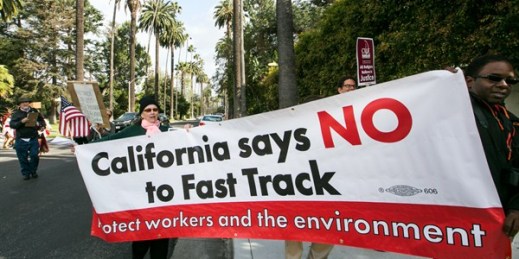
In this week’s Trend Lines podcast, WPR’s editor-in-chief, Judah Grunstein, and host Peter Dörrie discuss the prospects for Uzbekistan after President Islam Karimov’s death, the challenges of implementing Colombia’s peace deal with FARC rebels, and Iran’s posture toward the West and Saudi Arabia in the year since signing its landmark nuclear deal with world powers. For the Report, Kimberly Ann Elliott joins us to talk about the global backlash against liberalized trade. Listen:Download: MP3 Subscribe: iTunes | RSS Relevant Articles on WPR: Uzbekistan Faces Continuity With Karimov’s Successor—and the Same Challenges Why Colombia’s Historic Peace Breakthrough Was the ‘Easy Part’ […]

